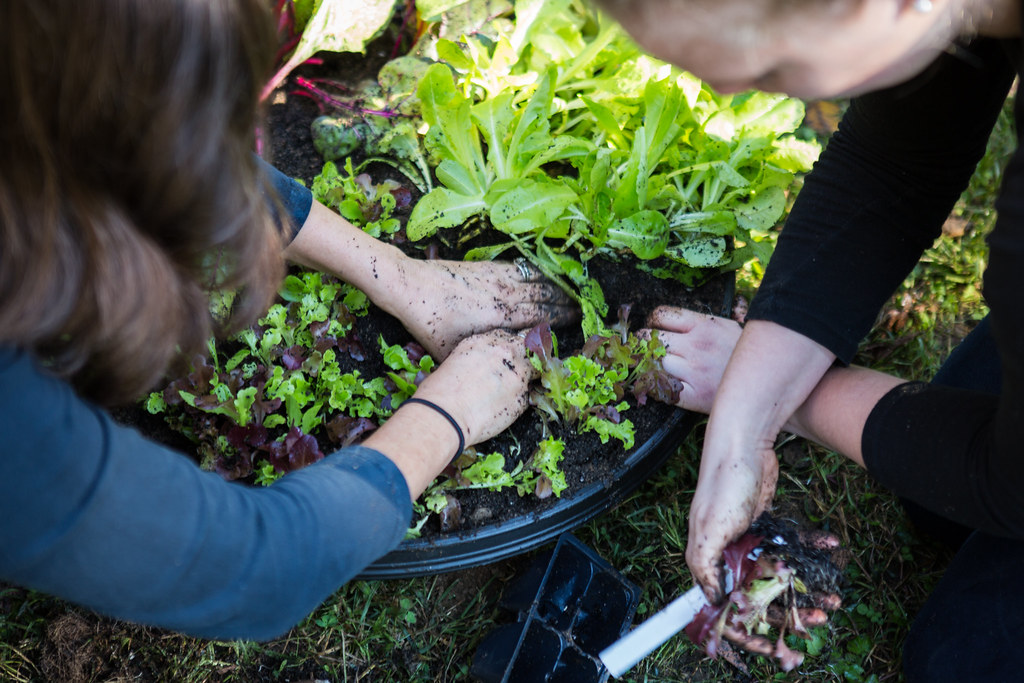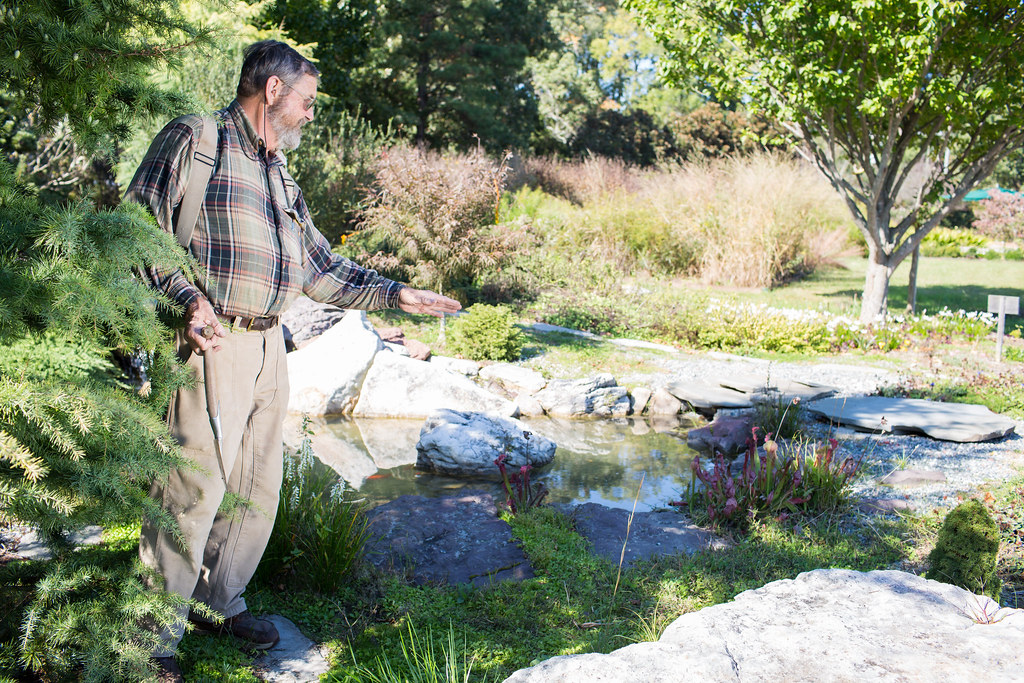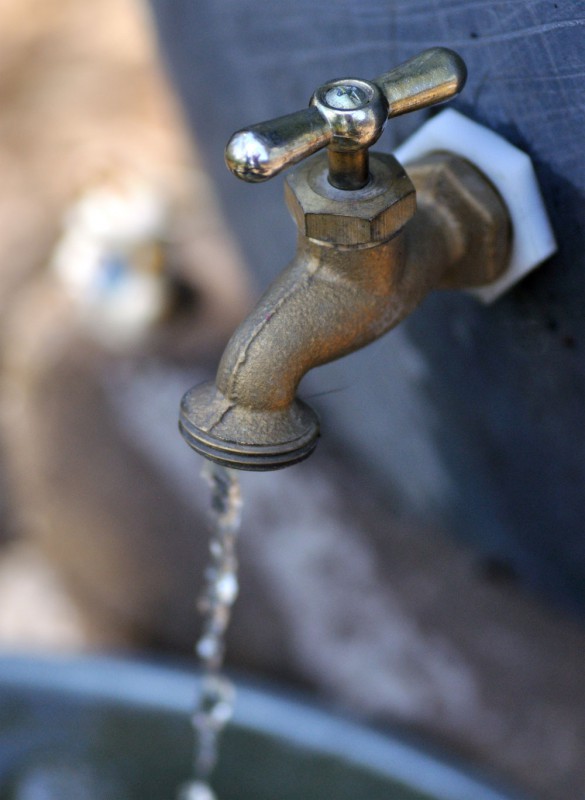Green Nurseries
The plant nursery industry has gained momentum in recent years despite declines in purchasing power during our country’s economic recession. Forward-thinking nurseries can predict landscaping trends by tracking the design magazines and online resources that many of their customers rely on. Martha Stewart Living, HGTV, and Apartment Therapy have all touted that efficient and eco-friendly gardening is coming into style.
According to the 2015 Residential Landscape Architecture Trends Survey conducted by the American Society of Landscape Architects, “sustainable and low-maintenance designs are the top trends for residential landscape projects.” Among the top project types with the highest expected consumer demand (over 70%) were native plants, edible gardens, permeable paving, rain gardens, and rainwater harvesting.

A rain barrel planter does double duty collecting rainwater, which can then be used to water edible plants such as lettuce or rainbow chard.
Consumers are aware now more than ever of the need to conserve water, provide habitat for wildlife, and use less chemicals on their yards. “There’s so many of us who have homes and gardens, the cumulative effect can be tremendous,” says Brent Heath, the owner of Brent & Becky’s Bulbs in Gloucester, Virginia. Many people are interested in eating food from “garden-to-table”, both for their own health and the health of local streams and rivers. These trends have taken root in the nursery industry, and are expected to continue to blossom in the coming years.
For independent nurseries to continue to be able to compete with larger retailers, they must accommodate the needs of their customers in the shifting economic and environmental landscape and harness the eco-friendly trend as a new business opportunity. So how can nurseries tap into the growing interest in the environment?
Nurseries can stand out from the crowd by adding native plant varieties. Most nurseries carry dozens of standard ornamental plants, which are marketed solely for their aesthetics. Native plants are more rarely represented, often comprising as little as 10% of nursery stock. These are also beautiful additions to a yard, but are low-maintenance and have other ecological benefits that appeal to today’s consumer.
Nurseries can highlight composting and other eco-conscious practices such as recycling plastic plant containers and energy reductions. They should encourage nursery staff to be knowledgeable about local plants and conservation landscaping, and be able to communicate the benefits of their eco-friendly choices to customers.

Brent Heath, the owner of Brent & Becky’s Bulbs, points out one of their nursery’s educational display gardens to showcase the beauty and benefits of Bay-friendly gardening with native plants. To see more, watch here.
The best way for nurseries to differentiate themselves from “big-box” retailers is to play to their greatest strength: the individuality of their on-site landscaping. Customers who visit a nursery are looking for the experience, not just another home improvement errand. They want a trusted source of information that will leave them with plants that meet their needs and a memorable shopping experience. By utilizing native plants and in attractive garden beds and other arrangements in the nursery alongside creative signage, nurseries can spark the imaginations of their customers and keep them returning year after year.
For more information on native plant nurseries in the Chesapeake Bay watershed, click here.
For more information, visit:
https://www.franchisehelp.com/industry-reports/green-industry-report/
http://pubs.ext.vt.edu/430/430-050/430-050_pdf.pdf
http://www.lgrmag.com/nursery-market-profitability
http://www.plantnative.org/how_intro.htm
http://www.zwickcenter.uconn.edu/outreach_reports_4_3566687448.pdf
https://allianceforthebay.org/2011/05/rain-gardens-a-greener-approach-to-landscaping/
http://www.marketplace.org/2015/03/19/business/plant-businesses-have-struggled-recession
